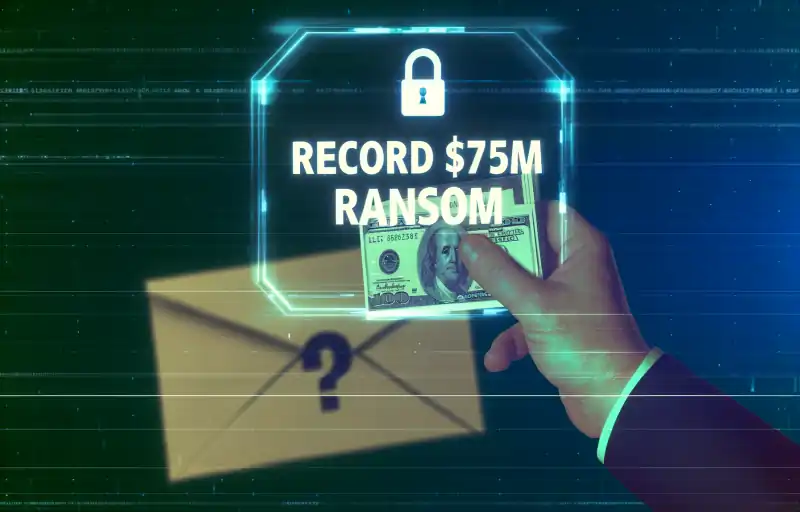
“Zscaler Exposes Dark Angels’ Record $75 Million Ransom, Highlighting Soaring Cybersecurity Threats”
Unpacking the Record $75 Million Ransom Payment to Dark Angels: Implications for Cybersecurity Strategies
In a startling revelation that has sent shockwaves through the cybersecurity community, Zscaler, a prominent cybersecurity firm, has disclosed that the Dark Angels ransomware group received an unprecedented $75 million ransom payment from a single victim. This incident not only marks a record-breaking payout but also highlights the increasingly perilous landscape of cyber threats that organizations worldwide are facing.
The Dark Angels, a relatively obscure group until now, have catapulted into the spotlight with this massive ransom transaction. Typically, ransomware attacks involve hackers encrypting data and demanding payment for the decryption key. However, the sheer scale of this payment suggests a highly sophisticated and potentially devastating attack that could have crippled critical operations or exposed sensitive data.
This incident raises significant concerns about the incentives for cybercriminals. With such substantial sums at stake, it is feared that ransomware attacks might become more appealing to criminals looking for lucrative payouts. This could lead to an increase in the frequency and sophistication of attacks, putting more organizations at risk and escalating the stakes in the digital security arms race.
Moreover, the $75 million ransom payment underscores the importance of robust cybersecurity measures. It serves as a stark reminder that traditional security strategies may no longer suffice in the face of highly organized and well-funded cybercriminal groups. Organizations must now consider advanced defensive strategies such as proactive threat hunting, real-time monitoring, and incident response capabilities to detect and reduce threats before they escalate into costly breaches.
The role of cybersecurity insurance in this context also comes under scrutiny. While insurance can provide a safety net by covering some of the financial losses associated with cyberattacks, there is a growing debate about whether it inadvertently encourages ransom payments. Insurers often calculate that paying the ransom is more cost-effective than prolonged recovery processes. However, this can perpetuate the ransomware economy, emboldening attackers and funding the development of even more sophisticated techniques.
In response to these challenges, there is a pressing need for enhanced collaboration between public and private sectors to strengthen cybersecurity frameworks. Governments worldwide are beginning to recognize the gravity of the situation, with initiatives aimed at improving national and international cybersecurity resilience. These include sharing intelligence on emerging threats, standardizing cybersecurity protocols across industries, and imposing stricter penalties on cybercriminals.
Furthermore, educating employees about cybersecurity best practices is crucial. Human error remains one of the most common vectors for cyberattacks. Regular training sessions can significantly reduce vulnerabilities, making it harder for ransomware campaigns to succeed.
As we move forward, it’s clear that tackling this issue requires a multifaceted approach. Strengthening technical defenses, enhancing regulatory frameworks, fostering international cooperation, and promoting cybersecurity awareness are all critical components in building resilience against ransomware attacks.
The shocking $75 million payment to Dark Angels is a wake-up call for all stakeholders involved in digital security. It highlights an urgent need for concerted efforts to not only enhance defensive capabilities but also to fundamentally rethink how we approach and manage cybersecurity risks in an increasingly interconnected world.














